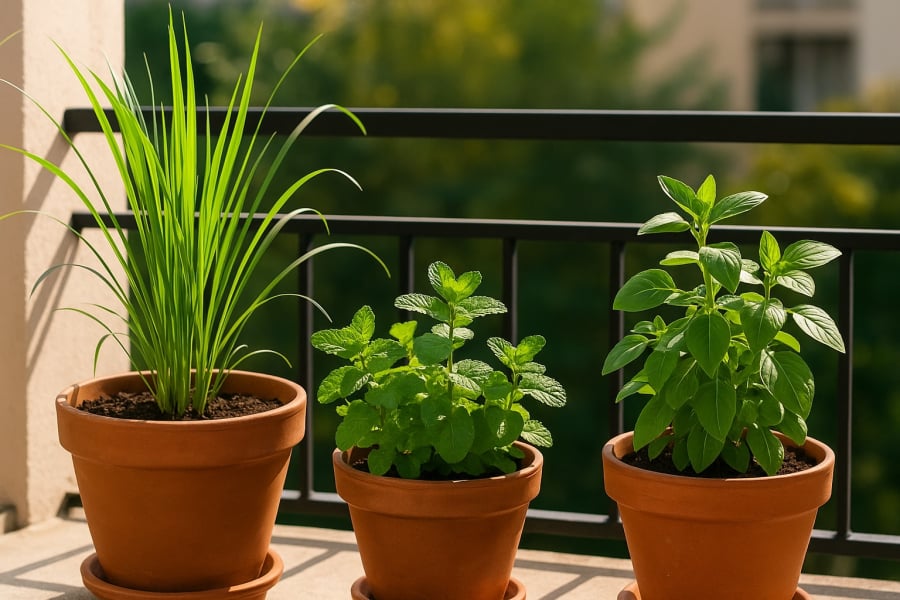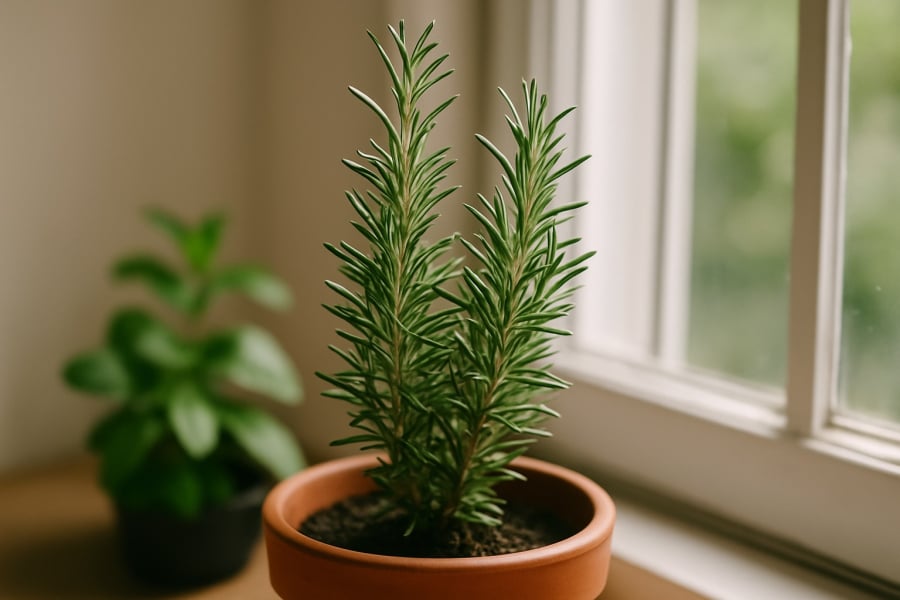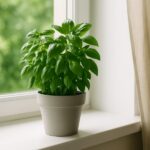Why Use Plants to Repel Mosquitoes?
Introducing greenery to your living space not only creates a relaxing and refreshing atmosphere but also serves as a natural, chemical-free way to keep mosquitoes at bay. Certain plants emit distinctive essential oils that mosquitoes find highly repellent, thereby reducing the risk of mosquito bites and effectively preventing dengue fever.
According to medical experts, using plants as a mosquito repellent is a natural, biological method that does not harm your health and is especially safe for children and the elderly. The Institute of Malariology, Parasitology, and Entomology affirms that certain plants emit natural fragrances from their essential oils, which can repel mosquitoes while contributing to a cleaner, more pleasant, and aesthetically pleasing environment for your home.
7 Beautiful and Effective Mosquito-Repelling Plants
Lemongrass: Nature’s Own Mosquito Repellent
Lemongrass is not just a familiar seasoning but also an extremely effective “bodyguard” against mosquitoes. The citrusy scent of lemongrass contains citral and geraniol, two compounds that mosquitoes detest. You can plant lemongrass in pots and place them on your balcony, porch, or by the windowsill.
Pro tip: Bundle lemongrass leaves and boil them to use the infused water to mop the floor or fumigate the room—a sure way to enhance the mosquito-repelling effect.

Lemon Balm: A Soothing Scent
Lemon balm is a member of the mint family, emitting a gentle lemony fragrance. Well-suited to Vietnam’s climate, this plant is easy to cultivate and resistant to pests. Not only does it repel mosquitoes, but it also aids in relaxation and promotes better sleep.
Mint: Cool and Mosquito-Free
The menthol in mint’s essential oil can numb a mosquito’s sense of smell, preventing them from locating their target. Placing pots of mint in your bedroom, kitchen, or entryway provides a natural barrier against mosquitoes for your family.
Additionally, mint is an excellent ingredient for tea and detox water, offering a refreshing and cleansing effect on the body.
Basil: Delicious in Dishes and a Mosquito Deterrent
The mild spiciness of basil keeps mosquitoes at bay. Growing basil in your kitchen garden or backyard is not only convenient but also adds variety to your daily meals.
Some households also gently rub basil leaves on their skin as a simple yet effective mosquito repellent.
Marigold: A Vibrant and Insect-Repelling Flower
Marigold not only repels insects but also brightens up your living space. These flowers contain pyrethrum, a natural insecticide found in many mosquito repellents. Planting marigolds at entryways, on balconies, or by windowsills adds beauty and protection to your home.
Ngũ Gia Bì: A Lucky Charm and Mosquito Repellent
Ngũ gia bì is considered a symbol of stability, unity, and good fortune in feng shui. Its unique essential oil, present in the leaves and stems, also makes it an effective mosquito repellent. This low-maintenance plant is well-suited for indoor or office spaces.
Rosemary: Air Purifier and Gentle Mosquito Repellent
Rosemary’s essential oil emits a pleasant fragrance for humans but is a nightmare for mosquitoes. In addition to repelling insects, rosemary helps reduce stress, improves focus, and enhances memory. Placing pots of rosemary near windows or in your workspace can bring surprising benefits.

Some Tips for Growing Mosquito-Repelling Plants
- Avoid water stagnation in pots: Mosquitoes tend to lay their eggs in stagnant water, so ensure proper drainage in your plant pots.
- Regular pruning: Keep your plants well-aerated and trimmed to prevent moisture buildup, which can attract mosquitoes.
- Combine with other mosquito prevention methods: Use mosquito nets while sleeping, swat mosquitoes, and eliminate mosquito larvae from water containers.
In Conclusion
9 Easy Tips to Make Your Home Shine Like Never Before, on a Budget!
“Those pesky flies buzzing around your home are more than just a nuisance. They can be a real health hazard, contaminating your food and spreading diseases. But don’t let these winged invaders get you down. With these handy tips and tricks, you can say goodbye to flies and hello to a clean and safe living environment.”
4 ‘Air Purifiers’ That Are Easy to Grow at Home: The Secret to a Fresh Living Space
Many people grow plants purely for aesthetic purposes, but what some may not realize is that common household plants such as basil, lemongrass, and mint possess a hidden superpower. These humble herbs are not just a feast for the eyes, but they also possess the extraordinary ability to purify the air, ward off pests, and create a soothing living environment, offering a natural therapeutic experience.





































